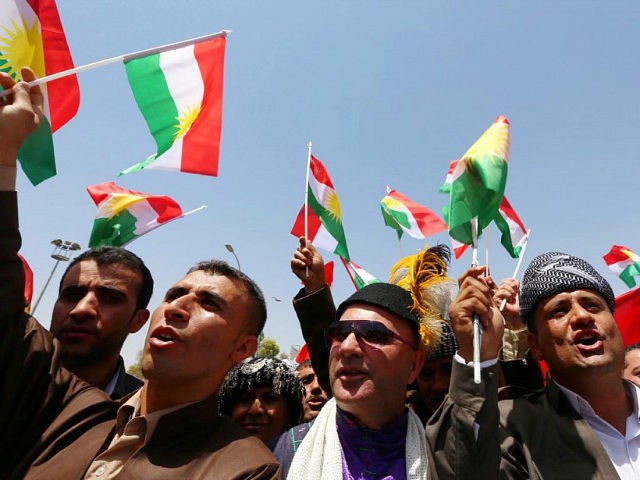The head of Turkey’s Nationalist Movement Party (MHP) defined the independence referendum scheduled to be held in Iraqi Kurdistan in September as a “cause of war” in remarks Thursday. Turkey maintains a significant military presence in Syria and Iraq, opposed by the governments of both countries.
“We must disapprove of Barzani’s referendum preparations, including in Turkmen towns, to the end,” MHP leader Devlet Bahçeli said, referring to Iraqi Kurdistan Regional Government (KRG) President Masoud Barzani. “It should be known that this potential referendum is a rehearsal for Kurdistan. This referendum is completely against Turkmens and Turkey. It should be deemed a cause of war for Turkey if necessary.”
Bahçeli referred to the KRG as “a dark enmity … trying to create an illegitimate, de facto situation, which completely violates international law and our sovereign rights.”
“We have to show our national power no matter what and defeat those who want to destroy our home and divide our land,” he concluded, apparently referring to Turkey, although the KRG does not contain any part of Turkey and is separated from Turkey by both Iraq and Syria.
The MHP is one of Turkey’s main parties and typically collaborates with the ruling Islamist Justice and Development Party (AKP) in the Turkish Parliament on legislation. While the AKP has also opposed the referendum, no high-ranking official of that party has threatened military action against the KRG, a Turkish ally.
The referendum is scheduled for September 25 and will ask people living in that region, whose capital lies in Erbil, Iraq, whether they support the creation of a sovereign Kurdistan in the KRG territory, carved out of Iraq. The Turkish government, the Iraqi government in Baghdad, and the U.S. government oppose it in varying degrees, with the latter suggesting the timing for such a dissolution of the Iraqi state as we know it is not right.
While the U.S. State Department acknowledged the “legitimate aspirations of the people of Iraqi Kurdistan,” spokeswoman Heather Nauert warned, “holding a referendum, even a nonbinding resolution at this time, will distract from urgent priorities – and that would be the defeat of ISIS, the stabilization, the return of displaced people, managing of the region’s economic crisis, and resolving the region’s internal political disputes.”
The KRG’s military, the Peshmerga, have played a key role in the war against the Islamic State in the region.
The Turkish government has not gone so far as the minority nationalist party. In a meeting with American Defense Secretary James Mattis this week, Turkish President Recep Tayyip Erdogan reportedly urged Mattis to help pressure the KRG into postponing the vote. “The president said the Iraqi Kurdish Regional Government’s move to carry out a referendum Sept. 25 on whether to declare formal independence from Iraq would be a wrong step,” according to the state-run Anadolu news agency.
Barzani, meanwhile, told Mattis in their in-person meeting that there is “no alternative” to the September vote.
“There is one possibility: If the United States, the European Union, the Security Council, or the United Nations come and give an official guarantee to the people of Kurdistan, it is possible to discuss that. But if tomorrow an ambassador in Baghdad – a statement from an ambassador is worth nothing, because I myself have experience with it,” Barzani said.
A KRG spokesperson added that Barzani “stated that no forced union has ever worked. We chose a union of willingness conditioned to partnership, but because partnership did not work and to prevent deeper problems, we want to live as two good neighbours.”
The Shiite-dominated government in Baghdad opposes losing control of the Kurdish region. The KRG, which is mostly Sunni, has expressed concerns that Baghdad has gotten too close to the Iranian government and was ill-equipped to fight ISIS when they first began laying siege to the country.

COMMENTS
Please let us know if you're having issues with commenting.